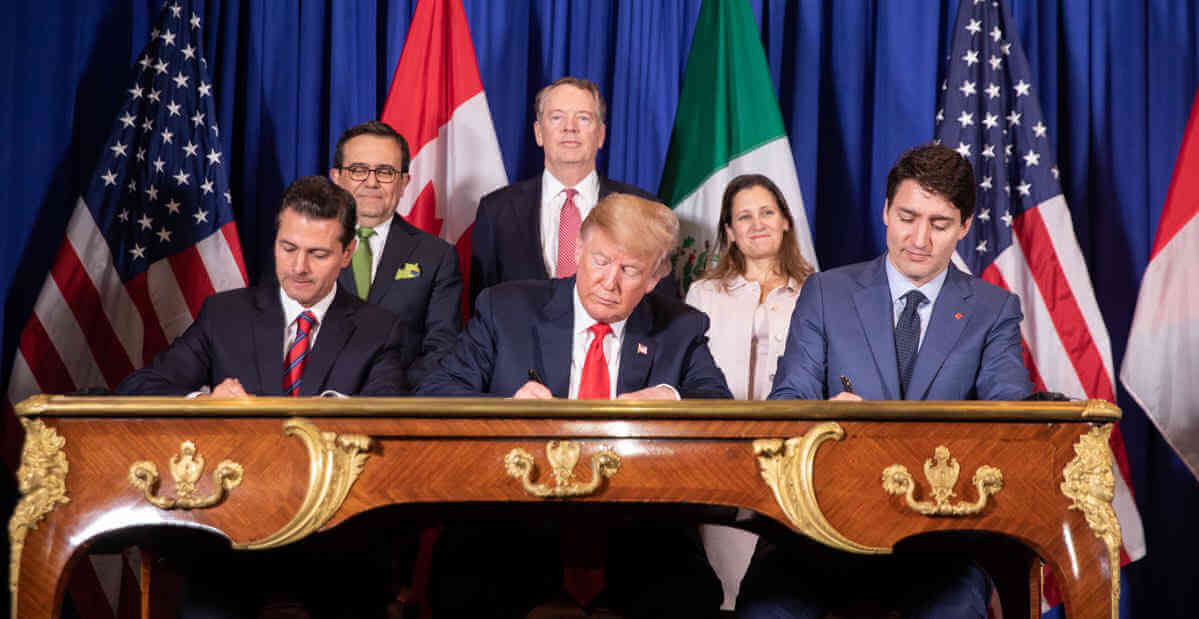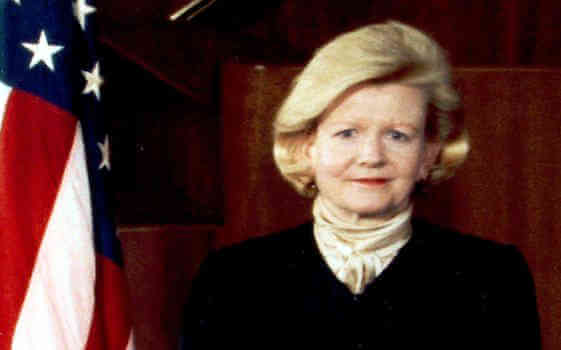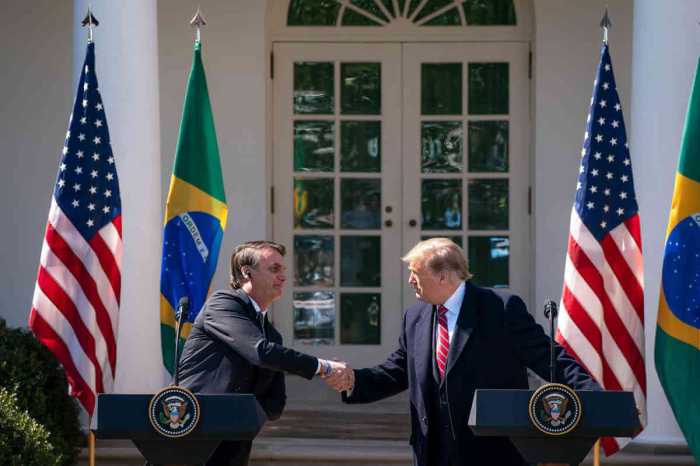A revised version of the trade agreement among the US, Canada, and Mexico contains a new footnote exempting the American side from discrimination protections on the basis of sexual orientation, gender identity, and more after strong pushback from Republican members of Congress.
The latest edition of the United States-Mexico-Canada Agreement (USCMA), which was signed by leaders of the three nations on November 30, still contains language directing countries to implement measures “appropriate to protect workers against employment discrimination on the basis of sex (including with regard to sexual harassment), pregnancy, sexual orientation, gender identity, and caregiving responsibilities; provide job-protected leave for birth or adoption of a child and care for family members; and protect against wage discrimination.”
But the footnote effectively wipes out American responsibility from that portion of the deal, declaring that federal hiring policies in the US “are sufficient to fulfill the obligations” on labor rights and “thus requires no additional action by the US.”
Yet, the US does not explicitly ban discrimination on the basis of sexual orientation or gender identity. Canada and Mexico have already banned discrimination on the basis of sexual orientation, while Canada has also banned discrimination on the basis of gender identity.
The Office of the United States Trade Representative Robert Lighthizer, who is responsible for developing US trade policy, did not immediately respond to a request for comment.
Republican members of Congress penned a letter stating their deep concern “by the unprecedented inclusion of sexual orientation and gender identity language for the first time in a Free Trade Agreement,” which they said “is no place for the adoption of social policy.”
Sarah Kate Ellis, the president and CEO of GLAAD, took to Twitter to slam President Donad Trump, noting that he “once again … caves to the anti-LGBTQ activists and squanders the United States’ status as a leader in LGBTQ equality.”
The deal is still subject to ratification, but Trump has mounted pressure on lawmakers to approve the deal by vowing to terminate the North American Free Trade Agreement (NAFTA), which the USCMA would replace if the new agreement is not okayed.





































